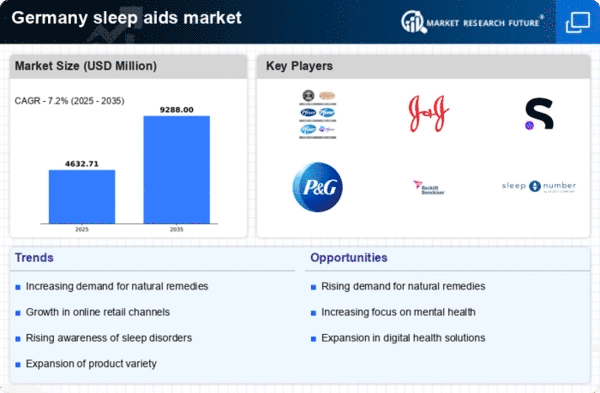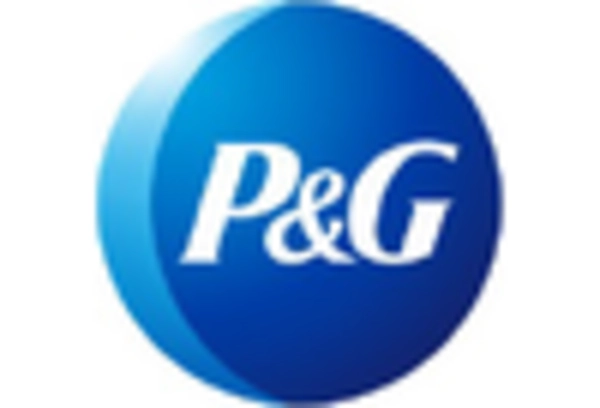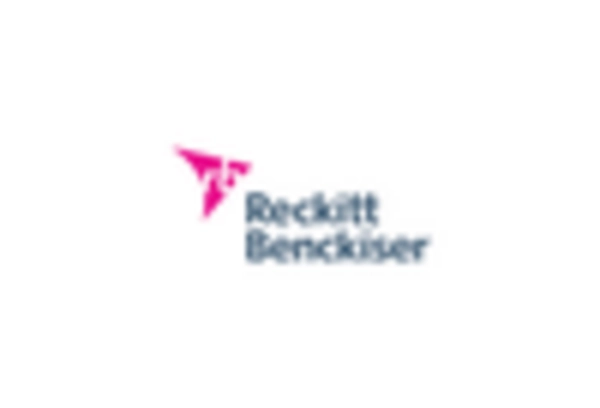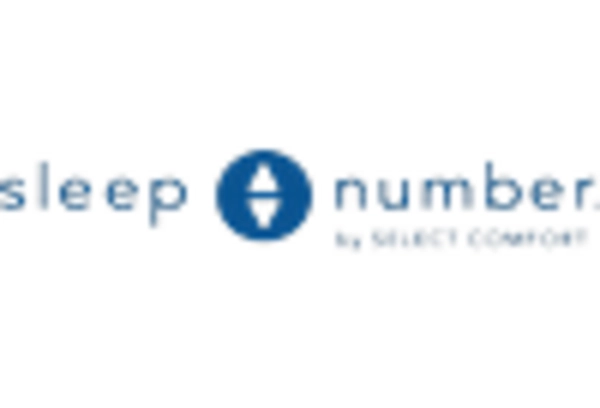Aging Population and Sleep Needs
Germany's aging population is another significant driver influencing the sleep aids market. As the demographic shifts, with a growing number of individuals aged 65 and older, the prevalence of sleep-related issues is expected to rise. Older adults often experience changes in sleep patterns, leading to increased incidences of insomnia and other sleep disorders. Reports suggest that nearly 50% of older adults in Germany suffer from sleep disturbances, creating a substantial market for sleep aids tailored to this demographic. The sleep aids market is likely to see a surge in products specifically designed for older consumers, including both natural and pharmaceutical options. This demographic shift not only increases demand but also encourages innovation in product development, as companies strive to meet the unique needs of aging individuals seeking better sleep solutions.
Shift Towards Preventive Healthcare
The shift towards preventive healthcare in Germany is significantly impacting the sleep aids market. As consumers become more proactive about their health, there is an increasing focus on maintaining good sleep hygiene as a preventive measure against various health issues. This trend is reflected in the rising sales of sleep aids that promote better sleep quality and overall well-being. The sleep aids market is likely to benefit from this preventive approach, as consumers are more inclined to invest in products that enhance their sleep experience. Additionally, the integration of sleep aids into wellness routines is becoming more common, with consumers seeking holistic solutions that encompass both physical and mental health. This shift may lead to a diversification of products available in the market, catering to a broader audience interested in preventive health measures.
Increasing Awareness of Sleep Disorders
The growing awareness of sleep disorders among the German population is a pivotal driver for the sleep aids market. As more individuals recognize the impact of sleep issues on overall health, there is a corresponding increase in demand for effective solutions. Recent studies indicate that approximately 30% of adults in Germany experience some form of sleep disturbance, prompting a surge in interest for sleep aids. This heightened awareness is likely to lead to increased sales of both prescription and over-the-counter sleep aids, as consumers seek remedies to improve their sleep quality. Furthermore, healthcare professionals are increasingly recommending sleep aids as part of treatment plans, further propelling the market forward. The sleep aids market is thus positioned to benefit from this trend, as educational campaigns and health initiatives continue to inform the public about the importance of sleep health.
Rising Stress Levels and Sleep Disruption
The escalating stress levels among the German workforce are contributing to a notable rise in sleep disturbances, thereby driving the sleep aids market. Factors such as long working hours, economic pressures, and lifestyle changes have led to increased anxiety and stress, which are known to adversely affect sleep quality. Recent surveys indicate that over 40% of employees in Germany report experiencing sleep issues related to work-related stress. This trend suggests a growing market for sleep aids that address stress-induced sleep problems. The sleep aids market is likely to expand as consumers seek both immediate relief and long-term solutions to manage their stress and improve their sleep. Companies may respond by developing products that combine relaxation techniques with sleep aids, catering to the needs of a stressed population.
Technological Advancements in Sleep Monitoring
Technological advancements in sleep monitoring devices are emerging as a key driver for the sleep aids market. Innovations such as wearable sleep trackers and smart home devices that monitor sleep patterns are gaining popularity among consumers in Germany. These technologies provide valuable insights into sleep quality, enabling users to make informed decisions about their sleep habits and the use of sleep aids. The sleep aids market is likely to see increased demand for products that complement these technologies, such as sleep supplements and relaxation aids. As consumers become more tech-savvy, the integration of technology into sleep solutions may enhance the effectiveness of sleep aids, leading to a more informed and engaged customer base. This trend suggests a potential for growth in the market as technology continues to evolve and shape consumer preferences.
















